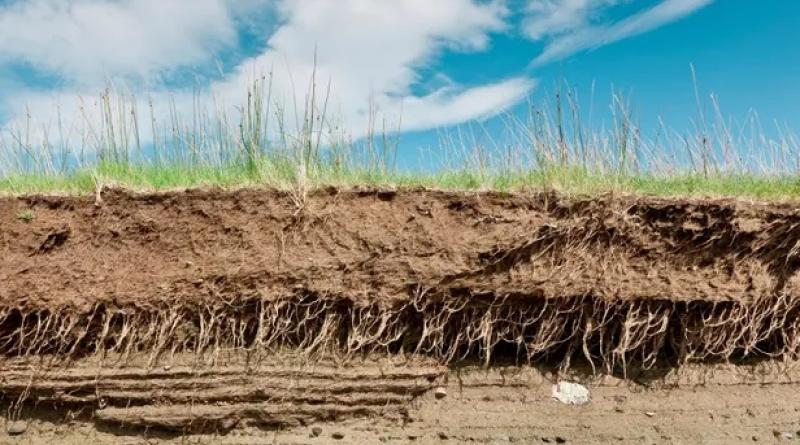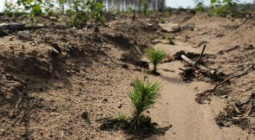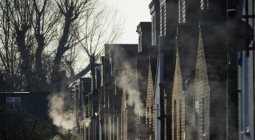The pandemic is a warning: we must take care of the earth, our only home

The climate crisis resembles a huge planetary lockdown, trapping humanity within an ever-deteriorating environment
There is a moment when a never-ending crisis turns into a way of life. This seems to be the case with the pandemic. If so, it’s wise to explore the permanent condition in which it has left us. One obvious lesson is that societies have to learn once again to live with pathogens, just as they learned to when microbes were first made visible by the discoveries of Louis Pasteur and Robert Koch.
These discoveries were concerned with only one aspect of microbial life. When you also consider the various sciences of the earth system, another aspect of viruses and bacteria comes to the fore. During the long geochemical history of the earth, microbes, together with fungi and plants, have been essential, and are still essential, to the very composition of the environment in which we humans live. The pandemic has shown us that we will never escape the invasive presence of these living beings, entangled as we are with them. They react to our actions; if they mutate, we have to mutate as well.
This is why the many national lockdowns, imposed on citizens to help them survive the virus, are a powerful analogy for the situation in which humanity finds itself detained for good. Lockdown was painful enough, and yet many ways have been found, thanks in part to vaccination, to allow people to resume a semblance of normal life. But there is no possibility of such a resumption if you consider that all living forms are locked down for good inside the limits of the earth. And by “earth” I don’t mean the planet as it can be seen from space, but its very superficial pellicle, the shallow layer of earth in which we live, and which has been transformed into a habitable milieu by the aeons-long labour of evolution.
This thin matrix is what geochemists call the “critical zone”, the only layer of earth where terrestrial life can flourish. It’s in this finite space where everything we care for and everything we have ever encountered exists. There is no way of escaping our earth-bound existence; as young climate activists shout: “There is no planet B.” Here is the connection between the Covid lockdowns we have experienced in the past two years, and the much larger but definitive state of lockdown that we find ourselves in: we are trapped in an environment that we have already altered irreversibly.
If we have been made aware of the agency of viruses in shaping our social relations, we must now reckon with the fact that they will also be moulded for ever by the climate crisis and the quick reactions of ecosystems to our actions. The feeling that we live in a new space appears again at the local as well as the global level. Why would all nations convene in Glasgow to keep global temperature rises below some agreed upon limit, if they did not have the sensation that a huge lid had been put over their territory? When you look up at the blue sky, are you not aware that you are now under some sort of dome inside which you are locked?
Gone is the infinite space; now you are responsible for the safety of this overbearing dome as much as you are for your own health and wealth. It weighs on you, body and soul. To survive under these new conditions we have to undergo a sort of metamorphosis.
This is where politics enters. It is very difficult for most people used to the industrialised way of life, with its dream of infinite space and its insistence on emancipation and relentless growth and development, to suddenly sense that it is instead enveloped, confined, tucked inside a closed space where their concerns have to be shared with new entities: other people of course, but also viruses, soils, coal, oil, water, and, worst of all, this damned, constantly shifting climate.
This disorienting shift is unprecedented, even cosmological, and it is already a source of deep political divisions. Although the sentence “you and I don’t live on the same planet” used to be a joking expression of dissent, it has become true of our present reality. We do live on different planets, with rich people employing private fire fighters and scouting for climate bunkers, while their poorer counterparts are forced to migrate, suffer and die amid the worst consequences of the crisis.
This is why it is important not to misconstrue the political conundrum of our present age. It is of the same magnitude as when, from the 17th century onward, westerners had to shift from the closed cosmos of the past to the infinite space of the modern period. As the cosmos seemed to open, political institutions had to be invented to work through the new and utopian possibilities offered by the Enlightenment. Now, in reverse, the same task falls to present generations: what new political institutions could they invent to cope with people so divided that they belong to different planets?
It would be a mistake to believe that the pandemic is a crisis that will end, instead of the perfect warning for what is coming, what I call the new climatic regime. It appears that all the resources of science, humanities and the arts will have to be mobilised once again to shift attention to our shared terrestrial condition.
-
Bruno Latour is a philosopher and anthropologist, the author of After Lockdown: A Metamorphosis and the winner of the 2013 Holberg prize
Cover photo: ‘The shallow layer of earth in which we live … has been transformed into a habitable milieu by the aeons-long labour of evolution.’ Photograph: Jon Helgason/Alamy






